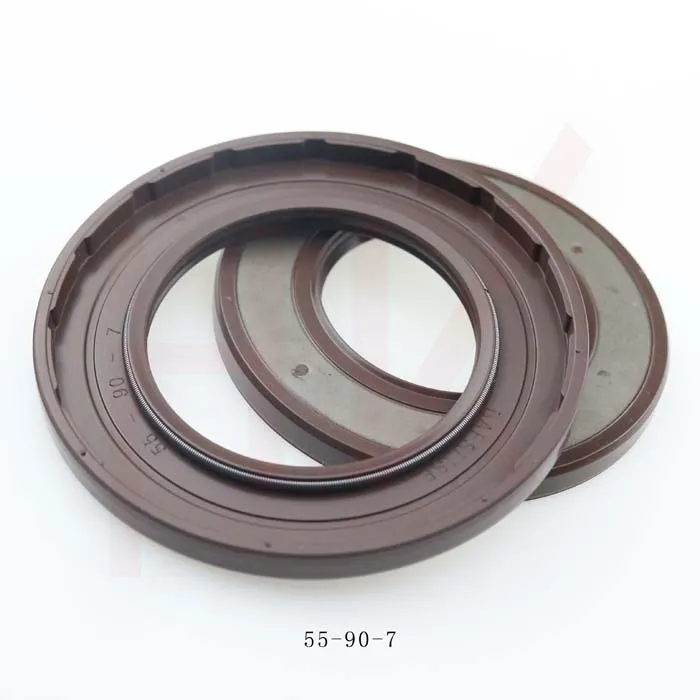Dec . 13, 2024 15:01 Back to list
cylinder rod wiper
The Importance of Cylinder Rod Wipers in Hydraulic Systems
In the world of hydraulic systems, every component plays a critical role in ensuring optimal performance, longevity, and reliability. One component that often goes unnoticed but is crucial to the system's efficiency is the cylinder rod wiper. This specialized component serves fundamental functions that significantly impact the system's overall health and productivity.
What is a Cylinder Rod Wiper?
A cylinder rod wiper is designed to prevent contaminants, moisture, and debris from entering the hydraulic cylinder, which houses the piston and rod that connect to various machinery and equipment. The wiper is placed at the opening of the cylinder where the rod exits, forming a protective barrier that minimizes the risk of contamination. These seals are typically made from durable materials like polyurethane or rubber, which are engineered to withstand harsh conditions and abrasive substances.
Functions of Cylinder Rod Wipers
1. Contamination Prevention The primary function of a cylinder rod wiper is to keep the hydraulic cylinder clean. Contaminants such as dirt, dust, and water can severely affect the performance of hydraulic systems. They can cause wear and tear on the internal components, leading to premature failures or inefficient operation. The wiper acts as the first line of defense against these contaminants.
2. Enhanced Performance By preventing contamination, the wiper ensures silky-smooth operation of the hydraulic rod. A clean rod reduces friction between the rod and the seal, allowing for smoother movement and improved responsiveness in hydraulic operations. This is especially important in applications requiring precision, such as in manufacturing or robotics.
3. Extended Lifespan of Components The longevity of hydraulic systems greatly depends on the effective sealing of their critical parts. A cylinder rod wiper not only protects the rod but also shields the seals inside the cylinder from unnecessary wear. By prolonging the life of these components, companies can reduce maintenance costs and equipment downtime.
4. Protection from Corrosion In many environments, hydraulic rods are susceptible to corrosion due to moisture exposure. The cylinder rod wiper helps to minimize this risk by preventing water and other corrosive substances from entering the cylinder. This is particularly important in industries such as marine and agriculture, where equipment often operates in wet or muddy conditions.
cylinder rod wiper

Types of Cylinder Rod Wipers
There are several types of cylinder rod wipers, each designed for specific applications and conditions. Some common types include
- Single Lip Wipers These are basic wipers that feature a single lip, which is adequate for many standard applications. - Double Lip Wipers With two wiping edges, these provide enhanced protection against contaminants and are suitable for harsher environments. - Tapered Wipers Designed with a tapered profile, these wipers facilitate easier installation and can provide a more effective wipe as the rod exits the cylinder.
Selecting the right type of cylinder rod wiper is essential, as it will directly impact the performance and durability of the hydraulic system.
Maintenance Considerations
To ensure the effectiveness of cylinder rod wipers, regular maintenance is vital. Operators should frequently inspect the wipers for signs of wear, damage, or degradation. If any issues are identified, timely replacement is necessary. Moreover, keeping the surrounding area clean and free of debris can further enhance the wiper's efficiency.
Conclusion
Cylinder rod wipers may seem like a minor component in the grand scheme of hydraulic systems, but their role is anything but trivial. By preventing contamination, enhancing performance, safeguarding against corrosion, and prolonging component lifespan, wipers are essential for the reliability and efficiency of hydraulic operations. In an age where equipment uptime and performance optimization are critical, investing in high-quality cylinder rod wipers and ensuring their proper maintenance should be a priority for operators across industries. Their contribution to the integrity of hydraulic systems can lead to significant operational benefits, making them a crucial element in maintaining the overall success of hydraulic machinery.
-
TCN Oil Seal Metal Ring Reinforcement for Heavy Machinery
NewsJul.25,2025
-
Rotary Lip Seal Spring-Loaded Design for High-Speed Applications
NewsJul.25,2025
-
Hydraulic Cylinder Seals Polyurethane Material for High-Impact Jobs
NewsJul.25,2025
-
High Pressure Oil Seal Polyurethane Coating Wear Resistance
NewsJul.25,2025
-
Dust Proof Seal Double Lip Design for Construction Equipment
NewsJul.25,2025
-
Hub Seal Polyurethane Wear Resistance in Agricultural Vehicles
NewsJul.25,2025
-
The Trans-formative Journey of Wheel Hub Oil Seals
NewsJun.06,2025
Products categories
















